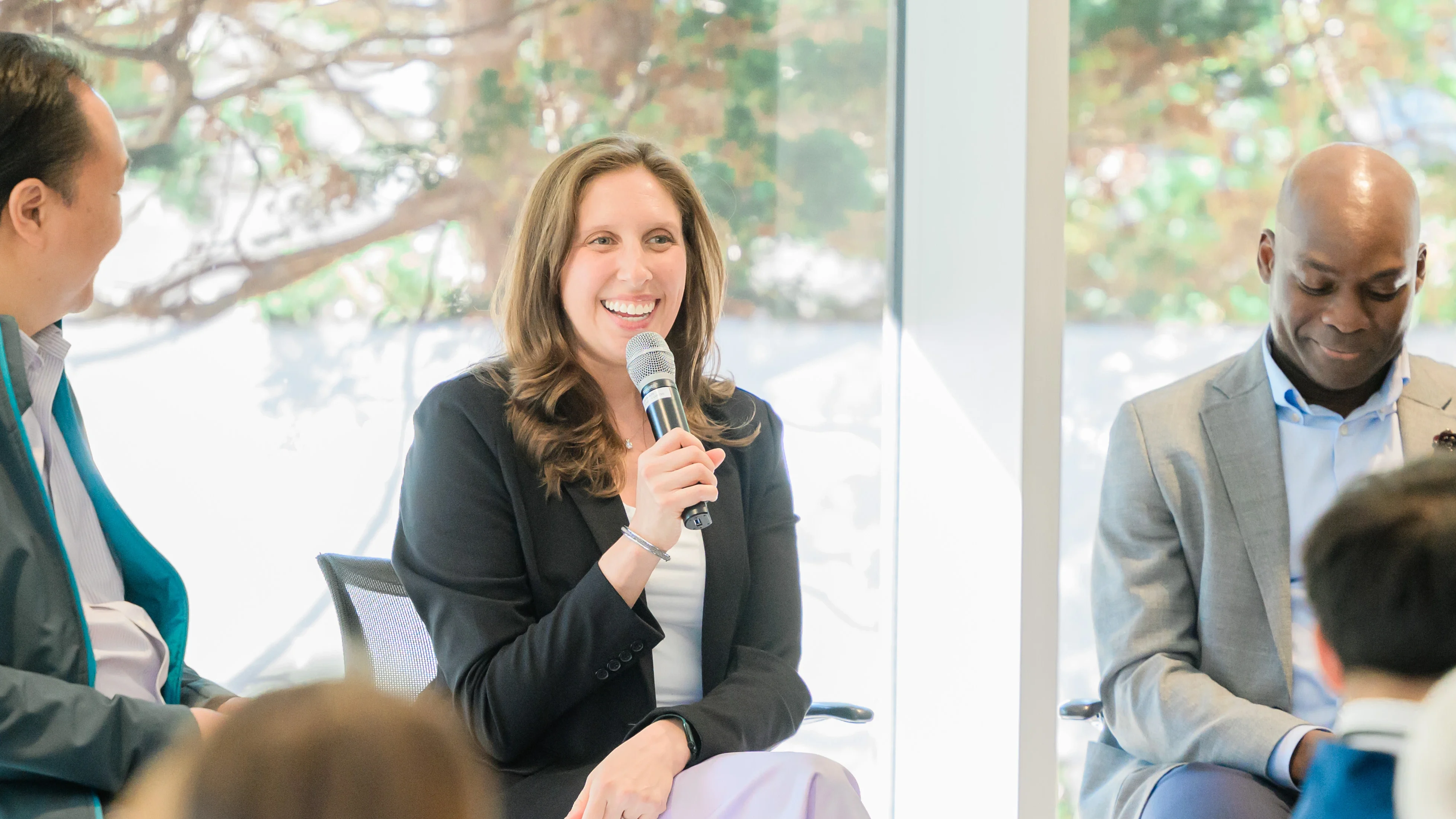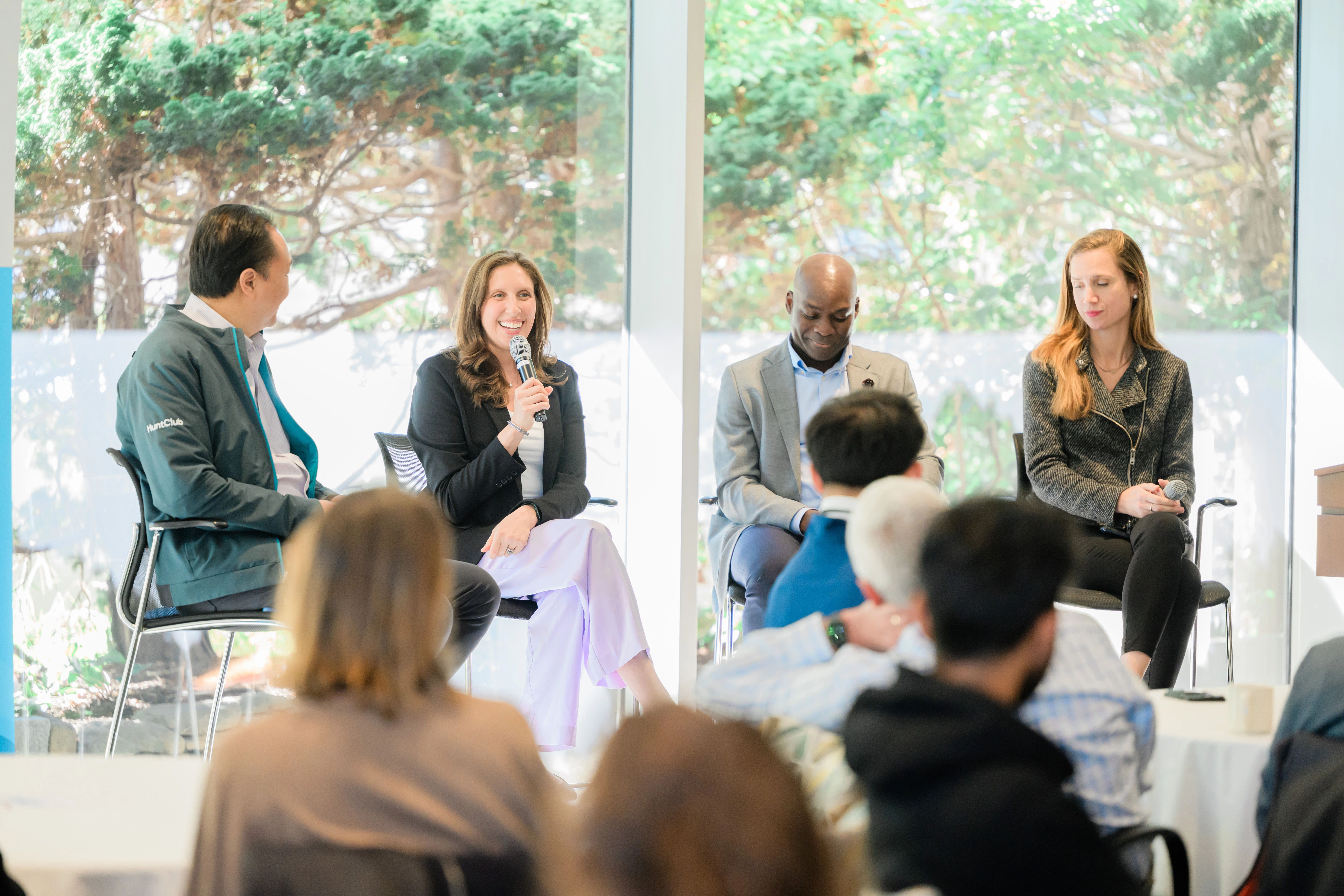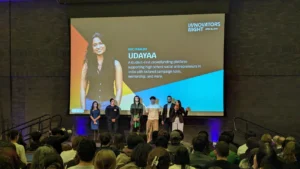How Allison Byers’08 Is Opening Doors Through Entrepreneurship and Policy
July 24, 2025

When Allison Byers walked into her first psychology class as a high school student, she thought she had her life planned out. A self-declared “psych nerd,” her early academic path was laser-focused on a future PhD in clinical psychology. But what she couldn’t predict then was that her journey would lead her not to a lab, but to the frontlines of tech entrepreneurship, capital equity reform, and national policy advocacy all rooted in a powerful foundation she built at Boston University’s Questrom School of Business.
Originally from the Boston area, Allison earned her undergraduate degree from Syracuse University and began her career at a boutique management consulting firm. “I loved understanding human behavior and using data to influence it, but I realized I didn’t have the language or training of business,” she recalls. “That’s when I knew I needed an MBA.” She found her home at Questrom.
“I chose Questrom not just for the business education, but for its emphasis on group dynamics and collaborative leadership. I was strong as an individual contributor but wanted to grow into someone who could lead in complex team settings.”
During her time at Questrom, Allison double-concentrated in Business Strategy and Marketing. She joined the leadership team for the school’s flagship Business Symposium, leading the marketing efforts for a high-profile conference that brought together 500+ attendees and industry experts. But it was her relationship with Professor and now Dean Fournier that became a defining chapter.
“Dean Fournier was my marketing professor, and her class changed the game for me. She made marketing feel accessible, and more importantly, she made the business world feel approachable. She helped me land my internship. She cared, truly. That left a mark on me.” That mentorship became the bedrock of a career devoted to creating access for others—especially for those historically left out of the room.
After graduating in 2008, Allison pivoted into digital consulting and web analytics. But her path took a sharp turn after maternity leave. “I was forced out of my job. It was a wake-up call. The system wasn’t built for working mothers. It broke me and then rebuilt me.” Allison channeled her resilience into launching a medical device startup, raising $10M and navigating the grueling startup ecosystem. But when she encountered another systemic barrier—this time, being shut out of Series B fundraising—she saw firsthand the gender bias in venture capital. Instead of giving up, she built a solution.
“Only 1.8% of VC dollars go to women. In Massachusetts, it’s just 0.6%. I couldn’t unsee that. I decided to dedicate my professional life to fixing it,” Allison says. That mission became Scroobious, a platform Allison founded to transform access to capital for underrepresented entrepreneurs. And from its earliest days, BU has been woven into its DNA.
“Cynthia Cohen, who awarded me a scholarship in my first year at Questrom, was the very first person I even talked to about the idea for Scroobious. We met at Pavement Coffee. She took me on a tour of the Innovate building, and it all started from there.” Cynthia remains an official advisor to this day. As Allison shared, “Some of my earliest memories before Scroobious was even incorporated happened with her guidance and BU’s support.”
Her connection to Questrom didn’t stop at graduation. Over the years, Allison has actively mentored students, spoken in classes, participated in panel discussions, and collaborated with Innovate@BU.
“I come back to speak to students, work with classes, and support student entrepreneurs. I recently served as a pitch judge for Samantha Zyontz’s entrepreneurship class and was incredibly impressed with the rigor and professionalism of the student presenters. I’m also looking forward to speaking on the upcoming Startup Fundraising Panel at Innovate in July.”
Her ties run deep: her husband is also a Questrom alum, and several of her investors and collaborators are BU graduates. “My business partner, some of my investors, even my husband — so many of us are BU or Questrom alums. This isn’t just a business school, it’s a community.”
She even represented BU at SXSW, speaking on a national stage and attending the BU alumni brunch to reconnect with Terriers from across the country.
As she emphasizes, “You can’t change what you don’t measure. If we want to create a more equitable funding ecosystem, transparency is the first step.”
Today, Allison is a national voice in capital access and angel investing. She’s advocating to modernize how the U.S. defines “accredited investors” to open the doors for more women and minorities to fund startups. Through speaking engagements, legislation, and personal investing, she’s creating new on-ramps into entrepreneurship.
She also co-authored a landmark California bill requiring venture capital firms to report demographic data on their investments a first-of-its-kind law that brought real transparency into a historically opaque space. Now, she’s championing similar bills in Massachusetts and New York. “Business leaders hold enormous power. If we want to build a better world, we need to act according to our values and speak loudly on behalf of our stakeholders and communities.”
Her work is a masterclass in social entrepreneurship, building profitable ventures that also elevate equity, ethics, and human dignity. “If you’re going to build a business for a community, you need those members to be building alongside you. Questrom helped me understand these facets of business-building, which I’ve used throughout my career.”
Her advice to the next generation? “Don’t wait for permission to lead. If something feels broken, build the fix. If something feels too big, start small. What matters most is that you begin. You are more capable and more connected than you think.”
Allison Byers’ story is not just one of professional success, but of legacy, advocacy, and unshakable purpose. Questrom gave her the tools, but she turned them into a mission. Now, she’s opening doors for the next generation to walk through.






Interview by Jyotirmaya Patro’25
Parts of this article were optimized with AI.


